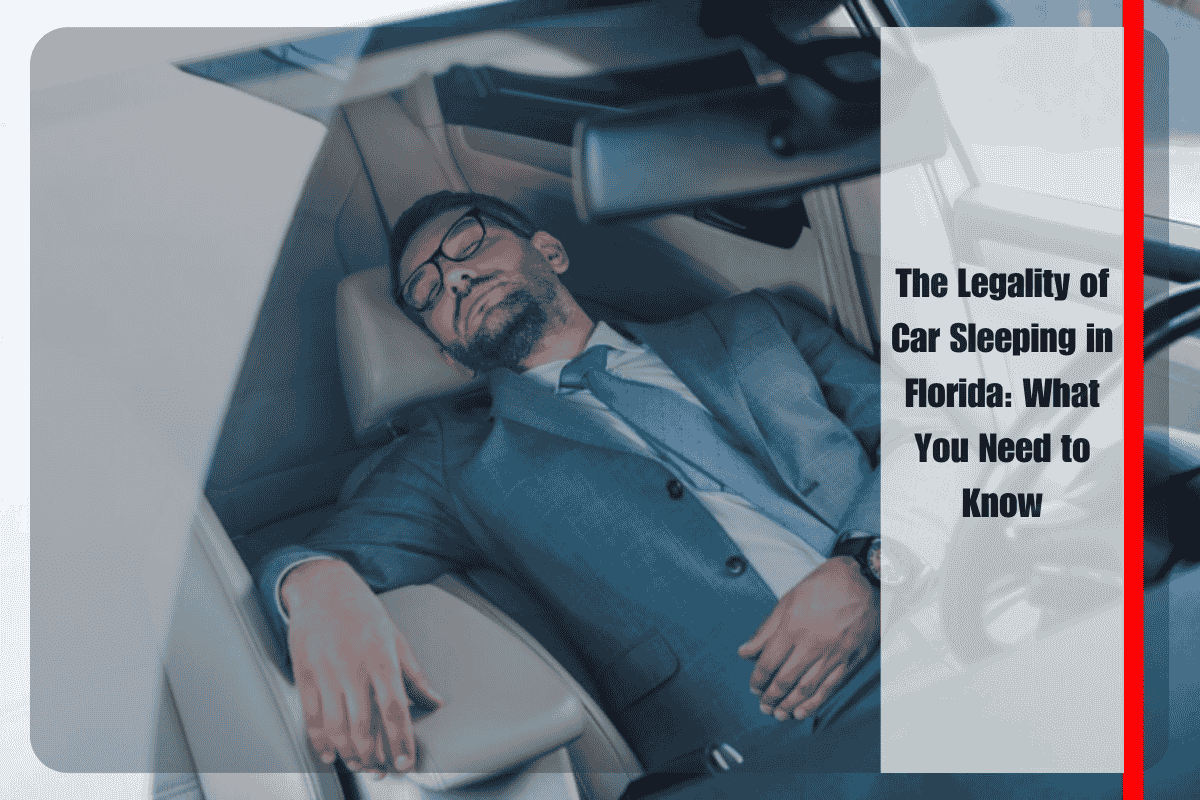Sleeping in your car in Florida is subject to a patchwork of state, local, and property-specific regulations, making it important to know where and how you can legally rest in your vehicle.
State Law and Recent Changes
As of October 2024, Florida enacted House Bill 1365, which bans public camping or sleeping in public places, including public buildings, rights-of-way, sidewalks, and streets. However, the law specifically does not prohibit residing overnight in a motor vehicle that is registered, insured, and lawfully parked in a location where overnight parking is permitted. This means that if you are parked legally on private property (with the owner’s permission) or in a designated area where overnight parking is allowed, sleeping in your car is not inherently illegal under state law.
Local Ordinances
Many Florida cities and counties have their own strict rules. For example, Miami, Pompano Beach, and Key West all have ordinances that make it illegal to sleep in a vehicle on public property, including streets, parks, and parking lots. Enforcement varies, but in most urban areas, sleeping in your car overnight on public property is likely to result in being told to move or receiving a citation.
Rest Stops, Truck Stops, and Private Lots
At rest areas and truck stops along Florida highways, you are generally allowed to sleep in your car for a limited time—often up to three hours. Some rest stops have signage or time limits, so always check for posted rules. Sleeping on the side of the road is typically illegal and unsafe.
Private property owners, such as Walmart or Cracker Barrel, may allow overnight parking and sleeping in their lots, but this is at the discretion of the business. Always look for signs prohibiting overnight parking or ask for permission if possible.
Key Prohibited Areas
Public streets, sidewalks, and parks: Sleeping in your car is generally prohibited in these areas due to local ordinances and the new state law.
Residential neighborhoods: Sleeping in your car in a residential area is likely to draw attention from law enforcement or residents and may result in being asked to leave.
Beaches and tourist areas: Many coastal cities and beach communities have strict prohibitions against overnight parking and sleeping in vehicles.
Enforcement and Practical Considerations
Enforcement of these laws is often complaint-driven or targeted at areas with high visibility or frequent issues. If you are not causing a disturbance and are parked legally (with permission on private property or in a designated overnight area), you are unlikely to face legal trouble. However, if you are found sleeping in your car on public property or in a prohibited area, you may be asked to move or receive a citation.
Summary Table
| Location Type | Generally Legal? | Notes |
|---|---|---|
| Public streets | No | Prohibited by state law and local ordinances |
| Public parks | No | Prohibited by state law and local ordinances |
| Rest stops | Yes (limited) | Usually up to 3 hours, check signage |
| Private lots | Varies | Allowed only with owner permission |
| Truck stops | Yes (limited) | Allowed, but check for time limits |
| Residential areas | No | Likely to be told to move or cited |
While Florida does not have a blanket ban on sleeping in your car, recent state law and local ordinances make it illegal to do so in most public places. Always seek out private property with permission or designated overnight parking areas to avoid legal issues
Sources
[1] https://www.wgcu.org/government-politics/2024-10-03/new-florida-law-bans-people-from-sleeping-in-public-places
[2] https://jerry.ai/state-laws/is-it-illegal-to-sleep-in-your-car-in-florida/
[3] https://www.youtube.com/watch?v=2lYA-Q0Sznw
[4] https://reolink.com/blog/is-it-illegal-to-sleep-in-your-car/
[5] https://teamjustice.com/is-it-illegal-to-sleep-in-your-car/












